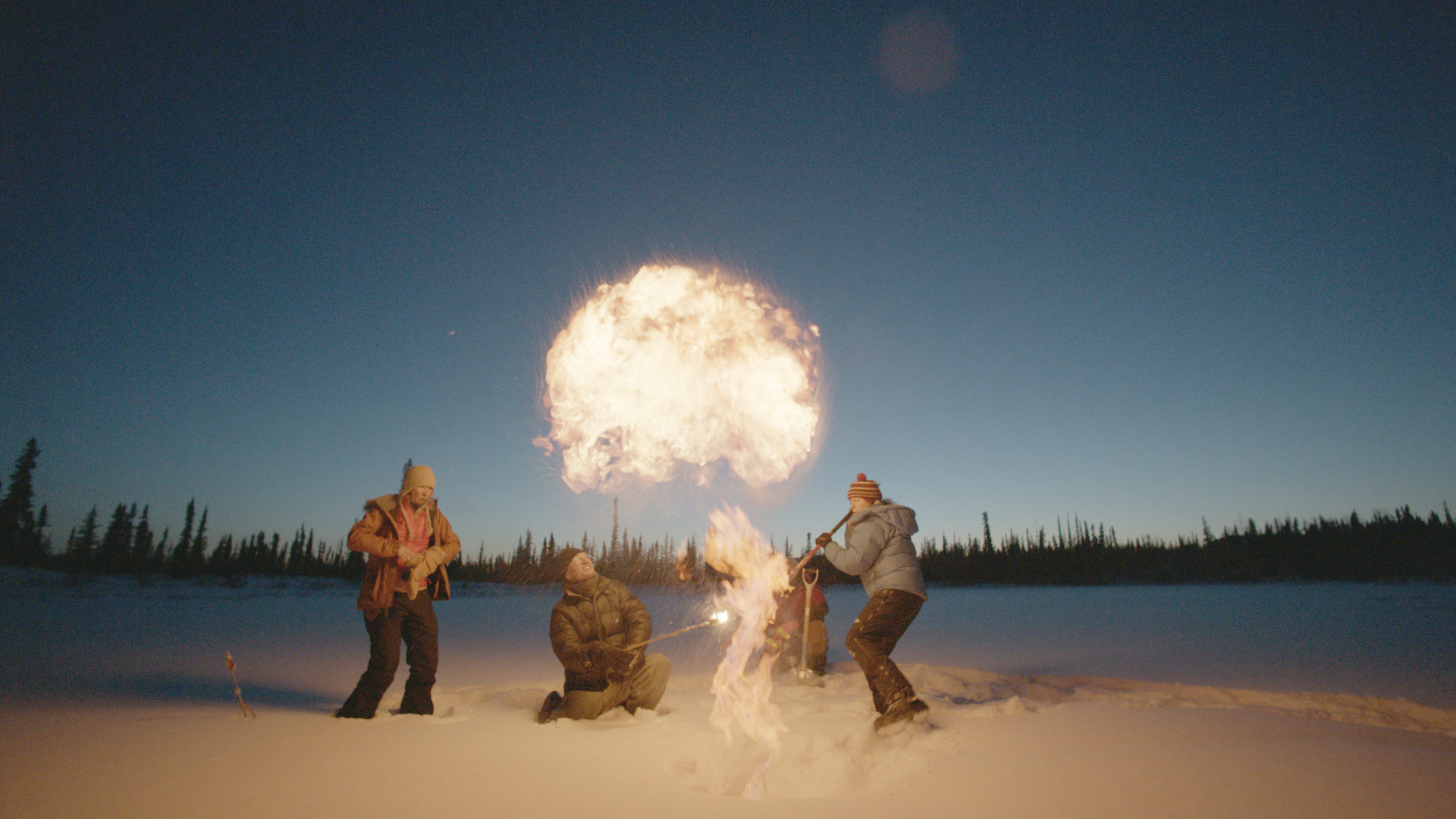Dec. 2 documentary sounds wake-up call about extinctions
By Pat Leonard

The voice of Cornell’s Christopher Clark is among the first you’ll hear in the documentary “Racing Extinction” Dec. 2 at 9 p.m. EST on the Discovery Channel. The film is a fast-paced exposé of illegal wildlife trafficking and the devastating ripple effects of fossil-fuel dependence.
Clark, senior scientist in the Cornell Lab of Ornithology’s Bioacoustics Research Program (BRP), traces his participation in the film to a serendipitous event. A BRP underwater recording device that Clark refers to as a “pop-up” went missing. It had been tethered to the ocean floor, recording the voices of whales, and was supposed to “pop up” to the surface so its data could be retrieved and analyzed. But this particular unit, anchored off the coast of South Carolina, broke loose early. It crossed the Atlantic and circled back, eventually washing up on a beach in Hispaniola, draped with seaweed. The man who found it was Academy Award-winning documentary filmmaker Louie Psihoyos, director of “The Cove.”
“There’s a little tag on the unit that offers a $500 reward for its return and gives the lab’s address,” Clark explains. “Louie brought it back to the United States. At that time, I didn’t even know who he was.”
Psihoyos was at work on a film about the health of the oceans and South Pacific island culture. The director’s focus shifted after Clark introduced him to the problems of noise pollution in the oceans, the likely effects on whales and ongoing efforts to conserve marine life, further underscored by the massive 2010 BP oil spill in the Gulf of Mexico. Psihoyos later broadened his perspective even further to include the notion of the Anthropocene, the sixth great extinction.
The documentary took shape around two main themes: the catastrophic consequences to the planet from use of fossil fuels and the loss of species as a result of climate change and illegal trafficking of everything from whales and sharks to elephants, tigers and birds. Psihoyos calls this the biggest story ever told and the biggest rescue ever attempted.
“Scientists predict that humanity’s footprint on the planet may cause the loss of 50 percent of all species by the end of the century,” the director says on the film’s website. “Our era is called the Anthropocene, or ‘Age of Man,’ because evidence shows that humanity has sparked a cataclysmic change in the world’s natural environment and animal life. Yet, we are the only ones who can stop the change we have created.”
To stop catastrophic changes resulting from human activity, massive numbers of people need to get the message and act.
“The problem is so big that we have to engage, not a million people, not 10 million people – we have to get to billions of people,” says Clark. “We have to tell the story incommon-sense words. … It really has to do with our responsibility to life on this planet.And you have to give people hope because what’s happening to the Earth is about all of us – we’re all in this.”
One scene in the documentary shows Clark and Psihoyos in the sound studio at the Macaulay Library at the Cornell Lab of Ornithology. They are listening to a recording of the Kauai O’o, a male bird calling for a mate who will never answer because he’s the last of his kind. Clark says: “I compare the world’s sounds to a symphony. Little by little, one by one, the musical instruments – in this case species – are being removed, driven to extinction. And then you end up with … silence.”
Clark says changing the world will only be possible from the grassroots up.
“I’m passionate about getting people to understand that our carbon footprint is unsustainable,” Clark says. “‘Racing Extinction’ offers a series of recommendations about what we as individuals can do to try to slow down the tidal wave of extinction, whether it’s skipping meat for a day or switching to a greener source of energy. Science is important but it’s not the answer. The answer lies in human behavior.”
For Clark, Psihoyos and the documentary team, that wandering “pop-up” became a message in a bottle.
“There are two choices. Give up or don’t give up,” Clark says. “And I’m not giving up. I have to believe that we as a species can make changes, otherwise we’re the ones who are going to be extinct.”
"Racing Extinction" will be available on iTunes and Amazon Dec. 3.
Pat Leonard is a writer for the Cornell Lab of Ornithology.
Media Contact
Get Cornell news delivered right to your inbox.
Subscribe